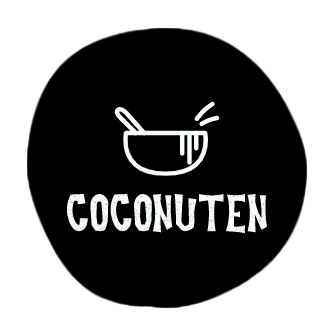1 Reasons for the rise of vegetarianism
1.1 Religious beliefs and ethics
Many schools of Buddhism, including Indian Buddhism, Southwest Hinayana Buddhism, and Tibetan Tantric Buddhism, have developed, and many of them do not completely prohibit non-vegetarian food. Taoism pursues “natural nature, respect for life and virtue”. The study of Western vegetarianism is based on the idea that animals have or should have moral status. There are Peter Singer’s animal liberation theory, Leopold’s earth ethics, Taylor’s biocentric ethics, Schweitzer’s reverence for life ethics, and Tom Regan’s animal rights theory. Later, the vegetarians Bohm, St. Thomas More, and Locke, and the anthropocentrists Penn, Leibniz, Hume, and Rousseau discussed the relationship between humans and animals from their own perspectives.
1.2 Health Needs
Ancient medicine took vegetarian diet as an important way to maintain health, advocating less fatty and thick taste and more light vegetarian food. The health benefits of a vegetarian diet have been documented in many medical health texts.
1.3 The need for simple beauty in diet
The first vegetarian food in the palace originated from the royal family’s heavenly rituals, and most of them used vegetarian materials to imitate meat. Not only the taste is excellent, but also the “form” of vegetarian dishes is combined with the “beauty” of the utensils. At the same time, the name also pays attention to the cultural flavor, giving vegetarian food a strong literary color. A simple vegetarian dish can be appreciated from the aesthetic point of view, and can be played with from the cultural point of view, experiencing different aspects of food, forming a cultural image of food with full color and flavor, and unified in form and spirit.
1.4 Low-carbon environmental demand
In a report entitled “The Long Shadow of Livestock: Environmental Issues and Options,” the Food and Agriculture Organization of the United Nations (FAO) noted that livestock are already producing far more greenhouse gases than cars due to the rapid growth of the livestock industry. The Worldwatch Institute report states, “The current global approach to raising animals is costing nature dearly: from the most immediate effects – shrinking grasslands and nitrogen pollution – to the most far-reaching – the most profound. –to the most far-reaching – climate warming and species extinction. Overdeveloped, resource-intensive livestock farming is in contradiction with the ecological protection of the planet”. Issues such as large-scale animal breeding, the right to human health, the development of biotechnology and wildlife conservation are forcing us to reduce our consumption of meat by-products, thus benefiting ecological balance.

2 Status of vegetarian food development
The development of vegetarian catering in China is still in its infancy, with about 99% of the restaurants currently engaged in meat and seafood catering and less than 1% in vegetarian catering. The vegetarian catering shows obvious regional imbalance, and the better developed ones are mostly located in economically developed regions and cities.
2.1 Religious vegetarian food
Religious vegetarian food includes vegetarian food in Buddhism, Taoism and other religious places. According to the survey, there are about 260 vegetarian restaurants in mainland China, among which Buddhist vegetarian food is the main one, and the proportion of them in temples and national special tourist attractions is about 70%; social vegetarian restaurants account for about 25%, mainly in economically developed regions such as Guangdong, Jiangsu, Beijing, Shanghai, Fujian and Zhejiang.
The prosperity of Buddhism has also led to the development of vegetarian food. Many vegetarian restaurants were founded by Buddhist practitioners, with the purpose of “promoting Buddhism, relieving death and releasing life, and advocating vegetarianism”, attracting more people to become vegetarians, such as the ancestor of vegetarian food — Kung Tak Lam and Dripping Water Vegetarian Restaurant. In recent years, some regions have used Buddhist vegetarian food as a tourism resource, allowing tourists to experience the essence of Buddhist cultural tourism in a more realistic and profound way. By holding promotional activities such as vegetarian food festivals, Buddhist vegetarian cultural tourism exhibitions, and vegetarian cooking competitions in Buddhist monasteries, a large number of tourists, especially Buddhist believers, are attracted. Buddhist dining rituals can be introduced into restaurants, and diners can be taught vegetarian Buddhist rituals in restaurants to make them feel the Buddhist attitude towards food and its unique culinary culture connotation.
2.2 Nutritional vegetarian food
At present, most vegetarian restaurants promote the health maintenance value of the dishes, but the characteristics are not distinct. Some studies have proposed the development of vegetarian and medicinal food, hoping to maximize the interest of consumers by expanding the promotion of vegetarian and medicinal food for health, and to focus on the design, promotion and planning of the image of vegetarian and medicinal food in the process of development.
2.3 Palace vegetarian food
Palace vegetarian food is the vegetarian part of the government cuisine. The vegetarian food of the Zhongming Ding Cuisine is no less elaborate than that of the meat dishes. The Confucian and Imperial vegetarian dishes are prepared in such a way as to highlight the status of the host. The combination of ancient palace vegetarian dishes and celebrity anecdotes is becoming an emerging trend in vegetarian dining.
2.4 Eco-vegetarian food
In recent years, most of the research on vegetarian food is based on the ecological conservation perspective, so that vegetarian food is based on the ecological concept of green and sustainable development. Organic vegetarian food is the only way to develop vegetarian catering in the future. Vegetarian catering enterprises should use various channels to promote the sustainable development and low-carbon concept of vegetarian food, integrate the cultural connotation of ecological vegetarian food, pay attention to the branding of ecological culture, and promote ecological dishes.

3 Existing problems
3.1 Vegetarian cooking skills are on the verge of being lost, and there is a lack of professional chefs
Traditional Chinese vegetarian food mainly relies on manual production, with complicated procedures and difficult techniques, and there is a lack of successors. Most of the chefs in restaurants do both meat and vegetarian food, and there are very few professional vegetarian chefs. The production of vegetarian food is imitated or even directly copied from meat production techniques, which is superficial from the cultural connotation to the production techniques, forming a dilemma in the transmission of Chinese vegetarian cooking skills.
3.2 Vegetarian atmosphere needs to be created and the consumer market needs to be expanded
The public has a low understanding of the connotation of vegetarian culture, and there is a misconception that “vegetarianism is harmful to health” or the stereotype of “eating fasting and reciting Buddhism”, while giving excessive importance to meat-eating behavior, believing that meat is a medium to convey friendship and cultivate social identity It is also a symbol of wealth, power and strength. These biased views have become an important obstacle to the development of vegetarian restaurants.

4 Development countermeasures
4.1 Increase the propaganda of vegetarian culture and expand the vegetarian food consumption market
Use various channels to promote vegetarianism as a healthy lifestyle. Vegetarian advocates and vegetarian restaurant operators should dig deeper into the ecological connotation of vegetarian food, so that people understand that vegetarian food brings not only health but also a harmonious balance of life.
- 2 Pay attention to the cultivation of talents and inherit vegetarian cooking skills
To promote vegetarian culture, vegetarian food production should be included in the compulsory curriculum of culinary students; to declare representative vegetarian food production techniques or vegetarian catering enterprises as intangible cultural heritage; to encourage vegetarian cooking experts to give special lectures; to promote cooperation and communication within vegetarian chefs, so that vegetarian chefs can clarify their responsibilities and missions.

